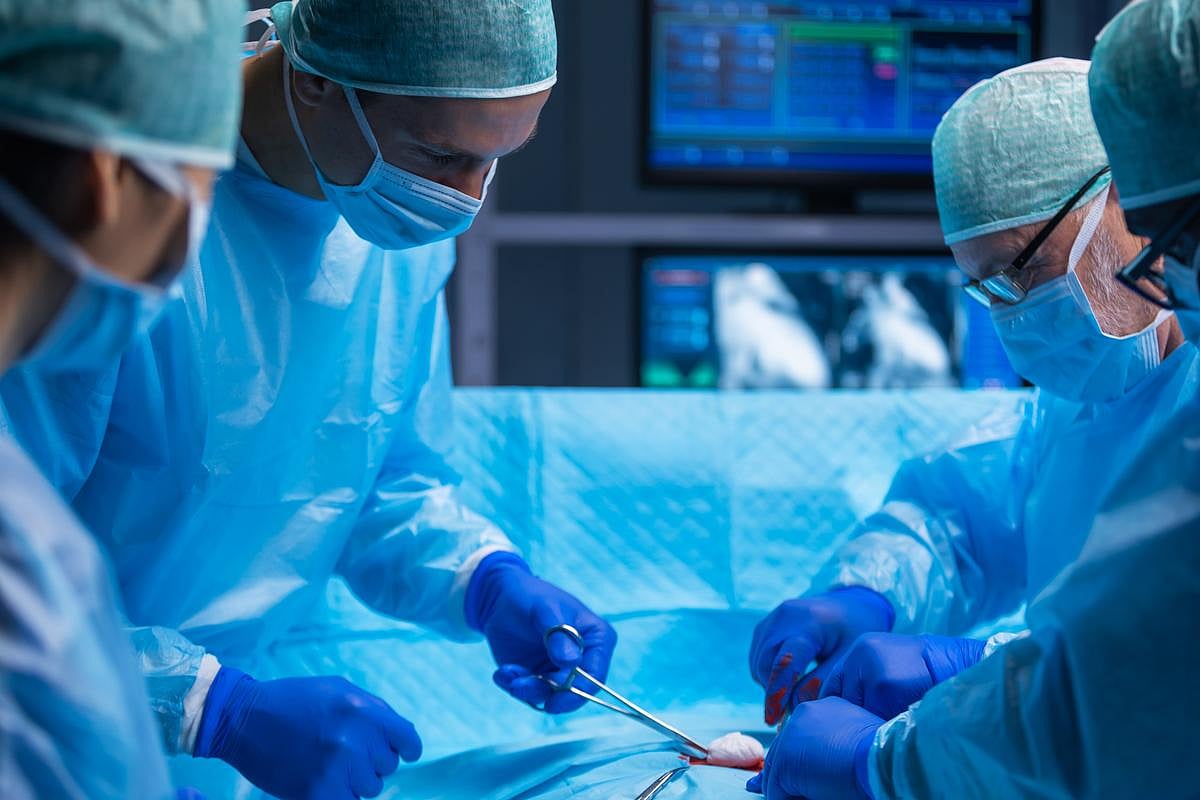COVID-19 Rapid Tests. Results in 20 minutes! Call for details.
We are currently offering COVID-19 vaccines Monday - Friday from 9AM to 5PM. No appointment necessary!
Manténgase sano!

- Ernie Mundell
- Posted October 31, 2024
Most Patients Can Keep Using GLP-1 Weight Loss Meds Before Surgeries
A new guidance issued jointly by groups representing U.S. surgeons, anesthesiologists and gastroenterologists affirms that most people taking popular GLP-1 weight-loss meds can keep taking them in the weeks before a surgery.
Concerns had arisen because the drugs, which include semaglutide (Ozempic and Wegovy) and tirzepatide (Mounjaro and Zepbound), liraglutide (Saxenda) and dulaglutide (Trulicity), can all delay stomach emptying.
It was thought that this slowdown might raise the odds for regurgitation and aspiration of food into the airways and lungs during general anesthesia and deep sedation during a surgery. That could raise the odds for a condition called aspiration pneumonia.
However, the medical groups involved in the new statement say that that risk must be weighed against the risks of discontinuing a GLP-1 medicine, including a rebound in blood sugar levels for people with diabetes.
Weighing the pros and cons, the experts decided that continued use of a GLP-1 med right up until a scheduled surgery is warranted.
The groups signing off on the guidance include the American Society of Anesthesiologists (ASA), the American Gastroenterological Association, the American Society for Metabolic and Bariatric Surgery, the International Society of Perioperative Care of Patients with Obesity, and the Society of American Gastrointestinal and Endoscopic Surgeons.
However, the new guidance isn't a one-size-fits-all recommendation, the experts said.
They advised that patients work with their health care team (anesthesiologist, surgeon and prescribing doctors) "to determine if adjustments can be made so surgery can proceed or if the procedure needs to be delayed until the risk decreases," according to a news release from the American Society of Anesthesiologists.
The guidance points out that any risk for food regurgitation can be minimized by having patients follow a liquid-only diet for 24 hours before their surgery, especially for folks on higher doses of GLP-1 medications.
Anesthesiologists can also tweak anesthesia plans to reduce the odds for aspiration and use "point-of-care ultrasound right before the procedure to assess stomach contents in patients at highest risk," the news release said.
In rare cases, medical teams might want to delay a surgery until the risk for aspiration declines.
But for patients at low risk, continuing with a GLP-1 med is fine.
“As anesthesiologists, we are committed to considering all factors to ensure patients get the best and safest care whenever anesthesia care is required,” said ASA President Dr. Donald Arnold. “In many cases, patients with scheduled procedures should continue taking the drug. Scheduling of elective procedures should integrate awareness of circumstances when the risk of delayed stomach emptying is highest, such as when the patient is just beginning the drug and the dose is being increased, as well as for patients with significant GI symptoms. Ideally, these risk factors should be assessed and minimized in advance, so the surgery or procedure can safely proceed.”
The odds for aspiration is greatest in the first weeks after a GLP-1 med is prescribed, since the delay in stomach emptying is more pronounced then. So, surgeries should be delayed until after this four-to-eight-week phase of GLP-1 use, the guidance recommends.
Also, patients taking GLP-1s who have any gastrointestinal side effects -- nausea, vomiting, abdominal pain, shortness of breath or constipation -- should wait till these symptoms ease before undergoing surgery.
Some patients, such as those with Parkinson's disease, already have slowed gastric emptying, so their surgical management plans may need special consideration if they are also taking a GLP-1 med, the guidance said.
The guidance was published Oct. 29 in the journal Surgery for Obesity and Related Diseases.
More information
Find out more about preparing for a surgery at Stanford Medicine.
SOURCE: American Society of Anesthesiologists, news release, Oct. 29, 2024






